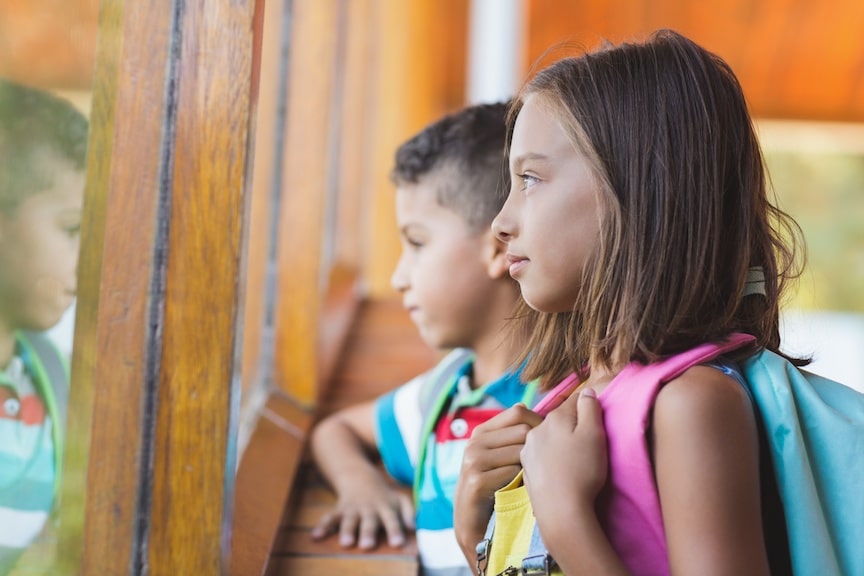The final bell has rung and children at public and private schools across the nation have cleaned out their lockers and headed out the doors and hopefully, outdoors.
Some of these children are departing schools that rarely allow their students to get down and dirty in the outside world — such as Polaris Charter Academy on Chicago’s West Side, where the school’s 450 students had been kept indoors due to fears associated with gun violence. In other parts of the country, fewer students get the opportunity to truly explore the world outside the playground or even lie down in the grass and point out the significance of cloud formations above.
These same schools, for a variety of reasons, don’t take the time to schedule impromptu short excursions to neighboring parks and wilderness areas, teaching students the names of native birds, plants and trees, pointing out urban and suburban wildlife, or following a slow-moving creek to a larger, more rapid tributary.
But just because most schools don’t fill that obligation doesn’t mean families can’t take over the job now that summer has arrived. The objective is to send these kids back to school in the fall — freshly cleaned up and rested — with heads full of new connections to the natural world.
So how do our children and students truly benefit from outdoor and adventure education? Here’s a short list of the positive attributes of wilderness exploration:
Stress Levels Drop — When serotonin, which is also known as “the happy hormone,” is released in a child’s brain, it produces euphoric feelings of safety and well-being. A well-planned day trip or weekend involving the outdoors serves to reduce stress, minimize “issues” and create memories. Head outdoors — it’s free!
Better Physical and Mental Health — Venturing outdoors can be a beneficial factor in battling obesity in adolescence students. When we lounge indoors, staring at a variety of screens, we might be stimulating our minds. But we’re also promoting a sloth-like environment that eventually results in physical repercussions. Added to those woes, that mental overstimulation can create anxiety, depression and a wide-open door to attention deficit disorder.
Besides, when you’re feeling better physically and mentally, you become more relaxed and your mind can readily receive information and instruction more freely when school starts up again in the fall.
Greater Motivation — A study conducted in 2008 demonstrated that a “significant amount” of young students gained greater enthusiasm about learning when they were outside. The study concluded these same students transported this enthusiasm back into the classroom after being given outdoor experiences. Go beyond the walls!
Positive Behaviors Increase — Ask most educators what gets in the way of classroom learning and you’ll hear the phrase “negative student behavior.” Again and again research points to improved disposition and positive attitudes among children introduced to outdoor learning environments.
Further research done in California schools shows that students were more on task and remained on task longer while being taught outside. On a personal level, I have witnessed student personality shifts from underperforming underachievers to dynamic, enthusiastic group leaders among those intent on learning in an outdoors environment.
Retention and Paying Attention — Traditional school classrooms can quickly become static. The buzz of harsh fluorescent lights, a dirty window with views of an asphalt parking lot, the temperature controlled by some “wizard” outside the walls of the room.
When you are exposed to the same dull floor plan day in and day out, most students find themselves becoming numb to new information. But when those same students are exposed to new and dynamic environments, their recall of what they are being taught increases. Mother Nature is not static. She wants you to notice, take note and remember. Get your students outside!
A rural environment, or city environs with rural attributes such as city parks and trails, promotes better grades. And, according to the research, California students who were exposed to outdoor education scored higher than students shut up in a classroom environment. Those outdoor learners missed less school, performed better in science and math and were happier students, according to the study.
For more information, you can read Cognitive and Affective Learning in Outdoor Education by Dennis Eaton. Or contact us here at The National Center for Outdoor Adventure & Education (NCOAE) and let us guide you to a better education.
– – – – – – – – – –
 About the Author: Stephen Mullaney is the staff development director at The National Center for Outdoor & Adventure Education (NCOAE) in Wilmington, N.C., where he is responsible for the training and education of NCOAE’s field instructors. He is a member of the North Carolina Association of Educators (NCAE) and has taught within the Durham, N.C., public school system. Stephen received his undergraduate degree in English from Framingham State University, and his Master’s Degree in Education from North Carolina Central University.
About the Author: Stephen Mullaney is the staff development director at The National Center for Outdoor & Adventure Education (NCOAE) in Wilmington, N.C., where he is responsible for the training and education of NCOAE’s field instructors. He is a member of the North Carolina Association of Educators (NCAE) and has taught within the Durham, N.C., public school system. Stephen received his undergraduate degree in English from Framingham State University, and his Master’s Degree in Education from North Carolina Central University.
TALK TO US
Have any further questions about our courses, what you’ll learn, or what else to expect? Contact us, we’re here to help!

Leave a comment